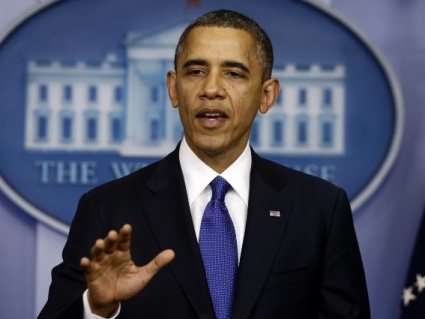October 24, 2014
Is the US serious about destroying IS?

The Islamic State (IS), ISIS, ISIL, or under any other name, is a vicious, genocidal terrorist organization cum government. It slaughters people who are not of its distorted religious persuasion, except occasionally when it imposes heavy taxes on them. It kills captured soldiers. It beheads innocent hostages. It abducts women and children. Altogether they are a nasty bunch. Yet they have been gathering recruits from around the Muslim world and even from the West.
But first let us ask few critical questions, not often asked by the American media.
How IS gets their recruits? Who trains them? Who supplies them with weapons and ammunition? And who is paying the bills?
Although every one now denies their involvement, facts on the ground for the last three years point out to Turkey and Qatar with the blessing of the US.
IS’s manpower is mostly foreign who were trained mainly in Turkey, the only Muslim NATO member, and supplied by Turkey with American arms and ammunition. Qatar bank rolled the operation including paying the foreign recruits their air tickets to Turkey, supplies and salaries.
Thus, it is less expensive in dollars and in lost lives that the US simply to ask both Turkey and Qatar, its main allay in the Arab world, to stop supporting IS.
But instead the US wants to bomb IS.
But where are the boots on the ground? No country is prepared to commit, even though the United States wants to volunteer Turkey. And in any case Western troops would not be most appreciated, in fact quite possibly counterproductive.
Up until recently the Western nations have sent some small arms, and now they are being promised or given more sophisticated and powerful weapons. Training will also help them, for example in dealing with bombs.
But one cannot count on just the Pershmerga.
One reason for the hesitancy around support for the Pershmega is concern for the integrity of Iraq, as the Kurds have separatist ambitions. As well, it is unclear if the Pershmega are prepared to stray beyond Iraq into Syria. Yet, if they did, a Kurdistan could represent a new troubling addition to the brew, as Kurds are found as well in Turkey and Iran.
So what about the Iraqi army? When the “coalition of the willing” conquered Saddam Hussein, the Americans disbanded his army. The new army has shown little taste for taking on the IS. They have instead fled and forfeited their US-supplied weapons to the enemy. One is reminded of the old joke about the Italian army. You can tell their tanks by the backup lights.
Let’s look at the main players and fields of action, first Syria. Syria is currently mired in a plethora of competing politico-military militias, most identifying with some Islamic tendency. Al-Nusra, the al-Qaeda affiliate, is one of the most successful in opposing the Assad government. So bomb IS and get al-Nusra? Bomb IS and/or al-Nusra and help Assad remain in power?
To the west of Syria, Lebanon looks on uneasily, fearful of falling apart and becoming another Syria. Shiite Hezbollah has sent forces to Syria to support Assad, and there have been clashes in Lebanon between Hezbollah-Assad supporters and anti-Assad Sunnis. Israel to the south watches nervously and waits, preferring that Assad stays and supplies stability. It treats an occasional wounded Syrian in hospital.
Iraq lies there gravely wounded. The wound is self-inflicted. Outgoing Prime Minister Nouri al-Maliki is largely responsible. Under Saddam Hussein, the minority Sunnis were in power, but with his defeat all that changed. Al-Maliki tilted the playing field so thoroughly in favor of the Shiites that Sunni resentment mounted. As a result, many Sunnis were prepared to go along with or even join the IS campaign.
Turkey, with its victory in recent years over its PKK Kurdish insurgency and with a continuing simmering discontent among its Kurds who continue to live under a certain cultural oppression, is not keen on saving the Kurds of Syria.
While it has accepted Kurds fleeing Syria, it has halted its own Kurds from crossing over to Syria to support their brothers in arms. In reaction to Turkish inaction, Kurds in that country have held angry demonstrations. Turkey’s announced position is that the goal in Syria is the removal of the Assad régime. If the Kurds suffer, that is hardly the greatest tragedy in their eyes.
Saudi Arabia is the other large country in the region and it has a major role in all that is happening. In Syria, in spite of their thorough distaste for IS and al-Qaeda, the Saudis want Assad gone.
What is happening in Syria is a proxy for other conflicts: Shiite Iran versus Sunni Saudi Arabia, and, in Cold War terms, Russia versus the United States.
Syria is predominantly Sunni, but control of what remains in government hands is Alawite, a Shiite offshoot. Thus, there is a Shiite crescent connecting Iran, Iraq, Syria, and Lebanon. Were Syria to fall, the crescent would be broken, leaving Lebanon isolated.
Where does all this leave Canada?
Essentially we are American camp followers, anti-Assad, anti-IS, anti-Iran, anti-Russia. Russia supports Assad’s Syria and collaborates with Iran.
Our allies are the United States and Saudi Arabia, a major source of oil and an important customer for Canadian military exports.
It is not clear how all this will end. But one thing is for certain: The US took a long expensive risky route to destroy IS.








